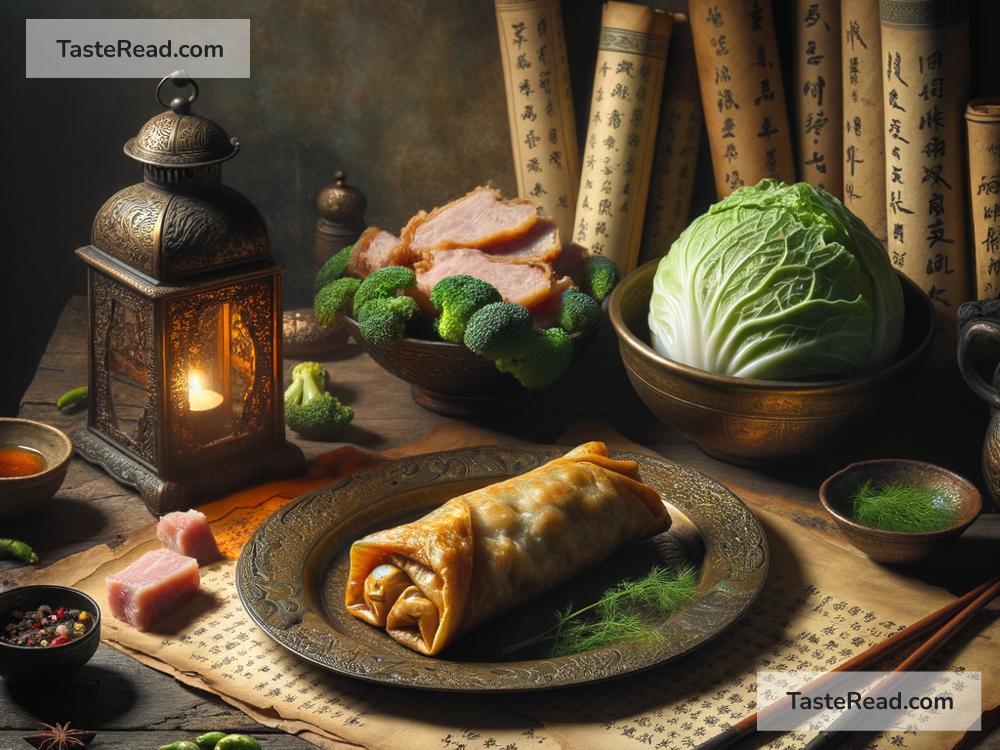The Origins of the First Egg Roll in Ancient Tales
Egg rolls are a favorite snack for many people across the world. Their crispy skin and savory filling make them a staple in Asian cuisine and beyond. But have you ever wondered about the origin of the egg roll? How did this delicious treat come to exist? While food historians trace its modern version to Chinese-American cuisine, some ancient tales suggest a more mythical beginning for the egg roll. These stories, passed down through generations, give us a glimpse into the cultural imagination of a delicious creation.
What Is an Egg Roll?
Before diving into its history, let’s briefly explain what an egg roll is. An egg roll is a rolled appetizer made of a thin dough wrapper filled with ingredients such as cabbage, minced pork, carrots, and sometimes shrimp or other vegetables. It is fried into a crunchy, golden snack. Despite its name, modern egg rolls often don’t contain egg in their filling, though some wraps have egg as an ingredient to bind the dough.
The egg roll has become globally recognized, especially in Chinese restaurants outside of Asia. But its origin story is a mix of history, tradition, and legend.
The Ancient Tale of the Egg Roll
One intriguing story about the origin of the egg roll takes us back hundreds, even thousands, of years to ancient China. In this tale, the egg roll wasn’t originally called an “egg roll” and was created almost by accident.
Legend says that in ancient China, during the spring festival, people celebrated the arrival of warmer days by making special foods to symbolize fertility, renewal, and happiness. One village had a tradition of wrapping spring vegetables, such as cabbage and radishes, in thin wheat wrappers. These “spring rolls,” as they were called, were steamed, not fried, and served as a light meal during the festival. The dish gained popularity for its simplicity and freshness.
The turning point happened when a humble chef named Wu encountered a surprising challenge. One spring, the wheat stock in the village was running low. Instead of steaming the wrappers, which required water, Wu decided to fry the rolls to save resources. Frying gave them a golden, crispy texture that locals found even more flavorful than the steamed version. To add richness, Wu added eggs to the dough mixture, giving the wrapper extra fluffiness and texture. His experiment was a hit, and people began calling these modified spring rolls “golden egg rolls” to honor their deep-fried coating and the use of eggs.
The Mythical Connection
Another tale links the egg roll to mythical figures. Some legends claim that the egg roll was a gift from the gods, meant to help humans celebrate abundance after a good harvest. In one story, an ancient farmer prayed to the goddess of spring for fertile soil and good crops. The goddess appeared to him in a dream and told him to create a dish that symbolized the rolling hills of his farm and the eggs that represented creation and renewal. The farmer woke up and made the first egg roll, combining simple ingredients from his harvest and rolling them into delicate wraps.
Whether or not these myths are true, they show how food carries deep cultural meaning. The egg roll wasn’t just food—it was a symbol of joy, renewal, and creativity.
Evolution Over Time
As centuries passed, the egg roll evolved. The use of different ingredients, cooking methods, and cultural exchanges shaped its current form. In ancient China, early versions of egg rolls were tied to local flavors and customs. Some regions added sweeter fillings like red bean paste, while others stuck to savory meat and vegetable mixtures.
During the Tang Dynasty, egg rolls became more famous as traders brought Chinese dishes to other parts of Asia. By the time the dish reached Western countries, particularly America, it went through another transformation. Chinese immigrants created a version suited to local tastes, introducing deep-frying and filling variations like shredded pork, bean sprouts, and celery.
The name “egg roll” is believed to have come from Western influences during the 20th century. While some early egg rolls may have contained eggs, others argue the name originated from the use of egg in making the dough. Regardless of its etymology, the egg roll became a staple in Chinese-American cuisine, served in restaurants across the United States.
Modern Egg Rolls
Today, egg rolls are enjoyed in many forms, from traditional recipes to innovative spins with fusion flavors. Many people still associate them with Chinese culture, though egg rolls have transcended borders and made their way into the hearts (and stomachs) of individuals worldwide. Whether served with sweet and sour sauce, soy sauce, or spicy chili, their versatility and delicious crunch are hard to resist.
Final Thoughts
Although the exact origin of egg rolls may be shrouded in mystery, the ancient tales give us a fascinating window into how food connects to culture, tradition, and creativity. Whether invented by a clever chef saving resources or inspired by mythical gods, the egg roll reminds us how shared stories enrich the things we eat. Every bite of a golden, crispy egg roll carries a history of innovation—and perhaps a hint of legend.
So, the next time you enjoy an egg roll, take a moment to appreciate its ancient roots and the journey it took to become the beloved treat we savor today.


